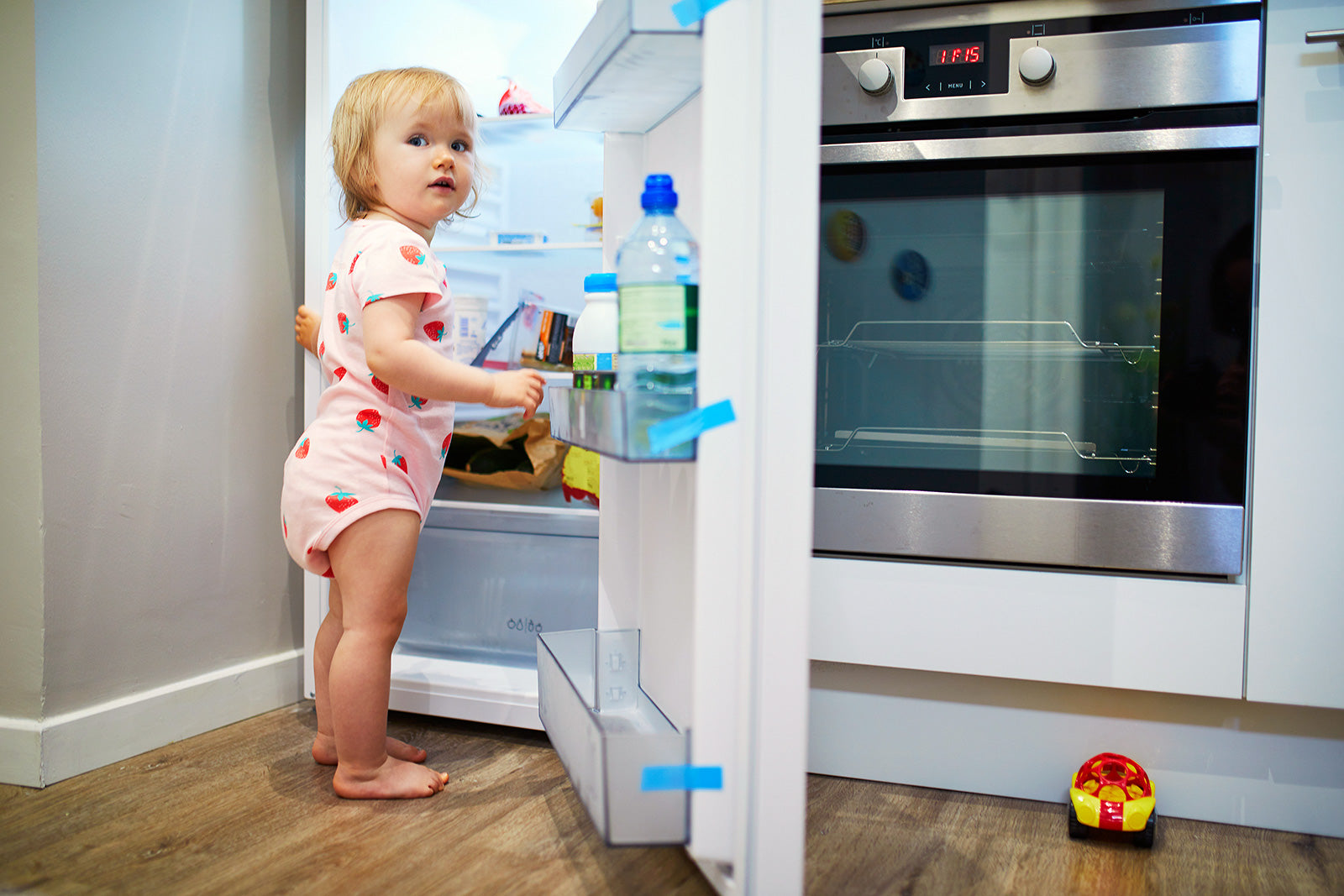A Real-Life Guide To Navigating the NICU

Expectant parents plan for just about everything they can think of as they await their baby’s arrival. But things don’t go as planned for many families, and their new bundle of joy ends up spending time in the neonatal intensive care unit or NICU. As difficult as this is, you aren’t alone when you’re navigating the NICU with your child.
Here at bökee, we understand the unique challenges of life in the NICU. Our twins arrived prematurely and spent nearly two months there.
In fact, our journey with our twins in those first weeks after they came home was the inspiration for bökee. And it brings us joy to know that our products can offer a little simplicity to a complicated time.
September is National NICU Awareness Month, so we want to take this opportunity to support and encourage families who are experiencing their own NICU journeys. Here are some real-life lessons learned from our time navigating the NICU.
First, No Blame
It seems to be instinctive for parents around the world to blame themselves if anything goes wrong for their children. But let’s get straight to the point with this. If your child needs to spend time in the NICU, please don’t blame yourself.
 Our bodies are complex, and so many things remain a mystery even with modern scientific advances. Sometimes problems just happen for no reason that anyone can determine. You might have a preemie baby, or your child may need additional medical support regardless of anything you did or didn’t do in pregnancy.
Our bodies are complex, and so many things remain a mystery even with modern scientific advances. Sometimes problems just happen for no reason that anyone can determine. You might have a preemie baby, or your child may need additional medical support regardless of anything you did or didn’t do in pregnancy.
You could follow every textbook guideline during your pregnancy and still end up seeing your baby in the NICU. So, no blaming allowed for you or your partner.
Time With Your Baby Will Vary
Each situation is unique, so the medical staff will determine how much contact you can have with your baby. Sometimes, placing a hand on them is all the doctors will allow. In other cases, you can hold, feed, and help bathe your little one.
For our family, it was 13 days before we had the chance to hold and feed our babies. As difficult as it is when you’re in this situation, your NICU team is doing everything to help your child thrive.
As your child gets stronger, you will be able to hold them more and more. As soon as possible, the staff will encourage you to have skin-to-skin contact with your baby. Many times, parents can hold their babies even with ventilators or feeding tubes attached. Don’t be afraid to ask!
 Most NICU facilities have an open layout so that nurses can quickly provide the necessary care. It’s unlikely that you’ll have much privacy with your baby, but don’t let that stop you from being with them as much as you want. Many NICUs offer screens so you can create a private space while visiting your baby. If you don’t see any, ask a nurse for assistance.
Most NICU facilities have an open layout so that nurses can quickly provide the necessary care. It’s unlikely that you’ll have much privacy with your baby, but don’t let that stop you from being with them as much as you want. Many NICUs offer screens so you can create a private space while visiting your baby. If you don’t see any, ask a nurse for assistance.
Breastfeeding and Pumping In the NICU
Movies and other fictional events lead us to believe that breastfeeding is always easy, carefree, and magical.
It so is not.
And in the NICU, there is even more complexity to this process. Preemies and other babies in the NICU often need a feeding tube to help them thrive. But even if you can’t put your child to the breast right away (I had to wait weeks!), you can start pumping. The hospital staff will connect you with a lactation expert to help with this.
 Preemies do best with breast milk if it’s an option for you, but early delivery can affect your milk supply. Some parents rely on donor milk, while others choose to use formula. No one is giving out medals for milk production.
Preemies do best with breast milk if it’s an option for you, but early delivery can affect your milk supply. Some parents rely on donor milk, while others choose to use formula. No one is giving out medals for milk production.
Do whatever helps your baby thrive and helps you survive your NICU journey. Even if you produce breast milk, many times the NICU will add human milk fortifiers to supplement nutrients that preterm babies need.
Ask All the Questions You Want To Ask
There’s no way to deny that being in the NICU causes anxiety. There is so much going on around you, and you’re worried about your baby. And you’re exhausted.
One of the best ways to reduce your anxiety is to ask questions. Knowledge truly is power, so go ahead and ask. You likely will receive a packet of information when your child goes to the NICU, and it will help.
But you have every right to ask any questions necessary to understand what is going on for your child. Even if you have to ask more than once. NICU days and nights are mostly a blur for parents, so you might need providers to repeat information. The more you know about procedures and rules, the calmer you will feel about your baby’s time in the NICU.
 The NICU nurses are generally amazingly compassionate and helpful. They can explain procedures and medications so that you feel more empowered.
The NICU nurses are generally amazingly compassionate and helpful. They can explain procedures and medications so that you feel more empowered.
There should also be a social worker who will connect with you once your child is admitted to the NICU. They are your advocate and your friend during this time and can facilitate communication with the medical team. If you feel like doctors or nurses aren’t listening to you, rely on your social worker to make this happen.
Social workers help you connect with services that your family or your baby might need, and they support you emotionally as you go through this trying time.
Navigating the NICU During COVID-19
Let’s address the elephant in the room. Or maybe the wooly mammoth? Megalodon? How big can we go? The COVID-19 pandemic has changed everything about how hospitals work.
NICU departments have strict visitation rules anyway, but right now, the restrictions are even heftier. Most hospitals are only allowing parents, one at a time. Siblings and other relatives typically cannot be in the NICU. And due to COVID, other family members probably can’t even hang out in common areas of the hospital to visit with you on your NICU breaks.
 These limitations can make the days in the NICU feel even more isolating. FaceTime, Zoom calls, and social media can help pass the time and ease the loneliness. If it works for your family and the hospital’s regulations, try to swap with your partner periodically. Getting some time away from all the NICU stimuli is so helpful.
These limitations can make the days in the NICU feel even more isolating. FaceTime, Zoom calls, and social media can help pass the time and ease the loneliness. If it works for your family and the hospital’s regulations, try to swap with your partner periodically. Getting some time away from all the NICU stimuli is so helpful.
And don’t forget that you have the right to remind every provider to wash or sanitize their hands if you don’t see them do it before handling your baby. This is true at any time but is even more crucial during the pandemic.
Is NICU Self-Care a Thing?
Navigating the NICU can feel like a full-time job because it kind of is. But even full-time jobs allow you some time off.
Sometimes, parents feel guilty if they aren’t with their baby around the clock, but no one expects you to do that. The NICU nurses and staff are always there, and you can step away whenever you need to do so. No judgment. Remember that part of taking care of your baby is taking care of yourself.
 There are several ways to give yourself a break from the rigors of the NICU:
There are several ways to give yourself a break from the rigors of the NICU:
- Get outside for some fresh air. Most hospitals have courtyards where you can stretch your legs and get a reprieve from the hospital air. Even just a few minutes outside, especially if there are trees or flowers around, can help lower your stress level.
- Take your book or magazine to the hospital coffee shop for a little while.
- If your child has a prolonged NICU stay, give yourself the grace to go home once in a while for a better night’s sleep (if you’re allowed to stay at the NICU). This is also important if you have other kiddos at home who can’t come see you in the NICU.
- Accept help. Meals, Door Dash gift cards, childcare, and housecleaning are all things that people are likely to offer you during this time. Say, “Yes!” whenever possible.
- Don’t ignore your medical needs. You just had a baby, remember? You likely have some necessary follow-up care for yourself. Be sure to recognize and honor your need to heal and recover.
Graduating From the NICU
 When it’s time for you to bring your baby home from the NICU, you’ll probably have all kinds of emotions. It’s totally normal to feel anxious or even terrified amid feelings of joy and relief.
When it’s time for you to bring your baby home from the NICU, you’ll probably have all kinds of emotions. It’s totally normal to feel anxious or even terrified amid feelings of joy and relief.
Coming home with a preemie or a baby who needs ongoing medical care can be intimidating, so just remember to rely on your team. Even though you’re not still in the hospital, you can ask all the questions necessary.
Make sure you have contact information for the following support people:
- Pediatrician
- OBGYN
- Specialists for Baby
- Lactation Expert
- Mental Health Provider
- Coffee Delivery (Ok, maybe not that one.)
Before you come home, try to have a conversation with your extended family about expectations. Set some boundaries around visiting, holding the baby, etc. You and your partner get to be in control of how this works, even if other family members don’t like it.
Grace and Patience Are the Keys
Every piece of navigating the NICU can be tough. So giving yourself and your partner all the grace in the world is crucial. You’re doing a great job. I promise.
Once you’re home and settled, you will start to notice where you need extra help. By all means, ask for it. And we’d be honored if you feel like our bökee can be a helpful tool for you.
It lets you open and close baby bottles, medicine bottles, and more with just one hand while you hold your child. Born out of frustration and necessity after our NICU journey, we hope it brings some ease to your family’s life.




